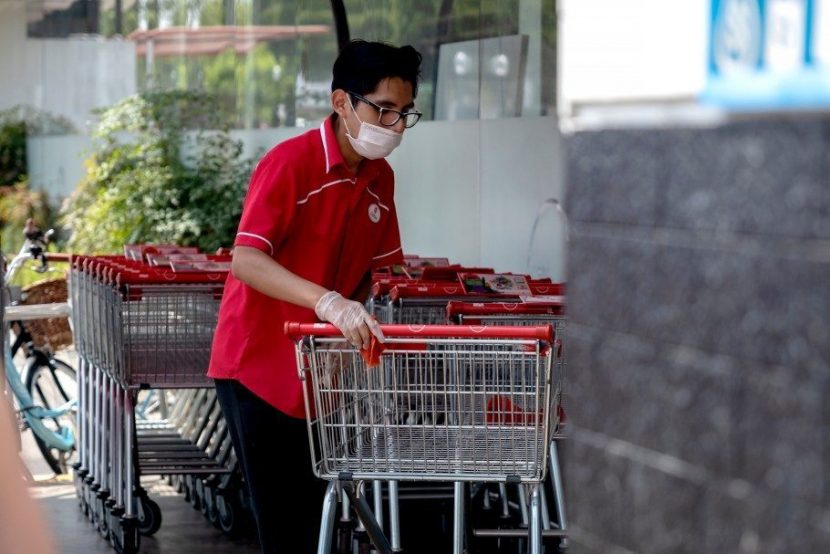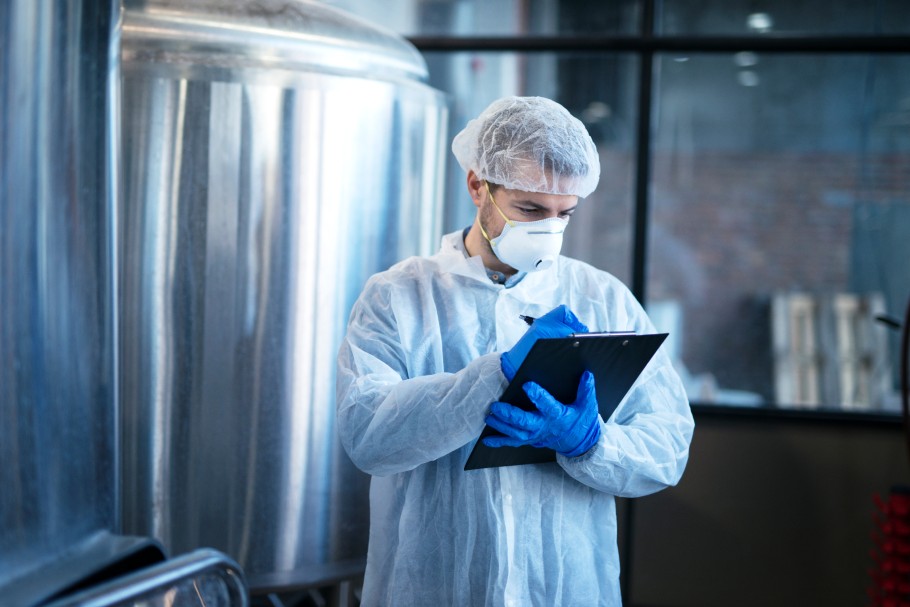Protecting Essential Workers in the Food Industry Necessary
By Susie Hoeller
March 2020 was the onset of millions of hospitalizations and deaths, as well as the unprecedented economic and social disruption caused by the COVID-19 worldwide pandemic.
Here we are in May 2021. Thankfully, the rollout of vaccines is starting to slow the death rate and spread of the disease globally. However, new variants have emerged and severe outbreaks of COVID-19 are still occurring. In Canada, strict lockdowns and protests in response are disrupting the economy. Millions worldwide are still unemployed, and most national economies are a long way from rebounding.
Despite the COVID-19 hot spots which occurred in meat packing plants and other parts of the food supply chain, most essential food workers have stayed on the job. In addition, selfless volunteers have manned food banks and distributed millions of meals.
In the past year, some grocery companies, such as Target and Costco, provided their food workers with hazard pay. Others, like Walmart, have raised hourly wages. However, after a handful of cities on the U.S. west coast passed municipal ordinances requiring hazard pay for food workers, it is distressing to report that only one major grocery chain closed stores as a result.
Even with vaccinations increasing, grocery store workers still have to contend with customers who refuse to wear masks and store management not enforcing mask mandates because of fear of violent confrontations with aggressive anti-maskers. This situation puts these grocery store employees at risk, especially for those not yet vaccinated. The installation of plastic shields and increased sanitation measures in stores, which have cost grocers millions of dollars, have helped reduce the person-to-person spread of COVID-19. However, universal masking and social distancing, especially indoors, is still the most effective mitigation strategy.
Since the beginning of the pandemic, the meat industry has been able to implement COVID-related safety measures and increase its production to squash meat shortages. Most recently, JBS SA and other meat packers have been paying their workers to get vaccinated, which is good news. However, for field workers, especially those who are undocumented, it is very difficult to coordinate vaccine access. Labor and community groups are working on this with door-to-door outreach to bring these workers to vaccination sites.
The Biden Administration is working with Congress to increase funding to rebuild the U.S. Occupational Health and Safety Administration (OSHA). This will enable the agency to vigorously enforce worker safety and enact new regulations.
However, in the past year, no significant legislation was passed in Congress to specifically protect essential workers in the food industry. One of the most needed reforms is to require sick pay for workers so they are not forced to choose between their health (and the health of those they serve) and their employment. Another is to increase the federal minimum wage while also providing tax incentives for small businesses so they can increase wages and stay in business.
There is a fundamental structural issue that workers in the food industry face. Too many of their jobs are low-paying and performed in often hazardous conditions (farming, ranching, fisheries and meat packing). This situation needs to be ameliorated since most of us would starve without their essential work.
In the U.S., critics will argue that if we raise wages in the food industry, food will become too expensive for most consumers. That result is not pre-ordained. If the government subsidies continue, which are primarily directed toward consolidating corporate giants, along with the lack of enforcement of the antitrust laws against these consolidations, then wage increases will cause food prices to rise. But structural change is possible whereby the enormous subsidization and profit-taking is reined in and the food industry is restructured for a more equitable distribution of profits. This would result in benefits for smaller firms, workers and consumers.
In my view, society’s values need to change so that those who produce and distribute our food are always paid a living wage and assured safe working conditions. Besides being a moral and humane approach, this is essential for our food security. What if another pandemic comes that is even more contagious and deadly? What would our food supply look like then?
This article is an opinion piece submitted by the author. It does not represent an opinion of GFSR.
About the Author:
Susie Hoeller is an international business attorney currently based in Tampa, Florida. She counsels companies, including food companies on regulatory compliance and negotiates contracts and intellectual property licenses. Ms. Hoeller was raised in Montreal, Quebec. She is a graduate of Colby College and Vanderbilt Law School and holds law licenses in five states. For more information, see: www.hoellerlaw.com.

-
 FeaturedRisk management
The Cost of a Breach: What a Cyberattack Could Mean for Food Safety Recalls
FeaturedRisk management
The Cost of a Breach: What a Cyberattack Could Mean for Food Safety Recalls
-
 FeaturedRisk management
Securing the Food Chain: How ISO/IEC 27001 Strengthens Cybersecurity
FeaturedRisk management
Securing the Food Chain: How ISO/IEC 27001 Strengthens Cybersecurity
-
 FeaturedRisk management
Revolutionizing Food Safety Training: Breaking Out of the “Check-the-Box” Mentality
FeaturedRisk management
Revolutionizing Food Safety Training: Breaking Out of the “Check-the-Box” Mentality
-
 GFSI Standards
GFSI 2025: Building Trust, Tech-Forward Solutions, and Global Unity in Food Safety
GFSI Standards
GFSI 2025: Building Trust, Tech-Forward Solutions, and Global Unity in Food Safety
-
 FeaturedFood Safety
Integrated Pest Management: Strategies to Protect Your Brand’s Reputation
FeaturedFood Safety
Integrated Pest Management: Strategies to Protect Your Brand’s Reputation
-
 FeaturedFood Safety Culture & Training
No Open Door Policy: Challenges That Impact Pest Control in Food Processing Plants
FeaturedFood Safety Culture & Training
No Open Door Policy: Challenges That Impact Pest Control in Food Processing Plants




